The invaluable role Sheffield magistrates play in our justice system
and live on Freeview channel 276
‘Good and lawful men’ to keep the King’s peace
Magistrates courts in England and Wales date back to 1285, during the reign of Edward I, and were created as a way of commissioning ‘good and lawful men’ to keep the King’s peace.
They are an essential part of our legal system. From their creation through to today, magistrates, also known as Justices of the Peace, have undertaken the majority of judicial work.
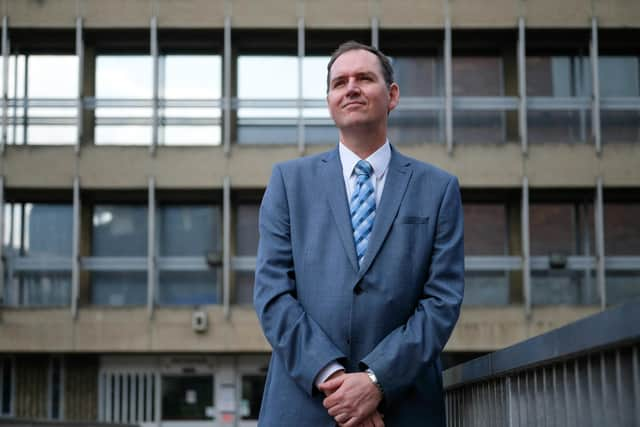

All criminal cases begin their journey through the British judicial system at a Magistrates’ Court
Advertisement
Hide AdAdvertisement
Hide AdAnd today, magistrates are thought to deal with around 95 per cent of criminal cases.
The word ‘magistrate’ derives from the Middle English word magistrate, a ‘civil officer in charge of administrating laws’ and their role in our current court system is as trained, un-paid members of their community who work part-time and deal with less serious criminal cases, such as minor theft, criminal damage, public disorder and motoring offences.
Huge reduction in Sheffield’s magistrates
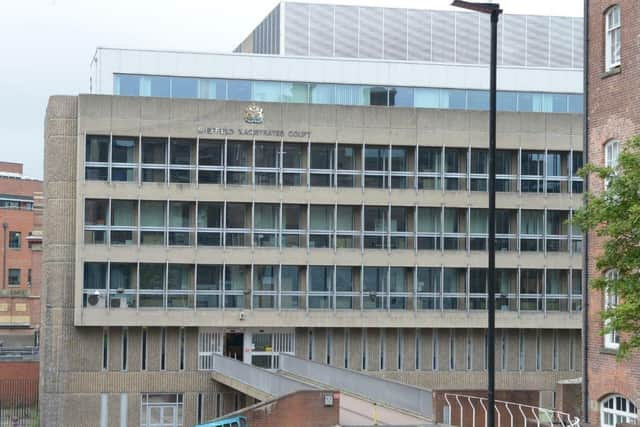

The hope is that by having ordinary people dispense justice through their role as magistrates, they will have lived similar lives to, and will be the peers of, the defendants who come before them.
This means they can draw upon their own experiences, knowledge and expertise, both through their profession and the role they hold within society, along with the evidence before them, to come to a just decision.
Advertisement
Hide AdAdvertisement
Hide AdThe number of magistrates presiding over South Yorkshire’s courts has decreased dramatically over the past three years. Figures from the Courts and Tribunals Judiciary show that there are 274 magistrates currently sitting in the region, compared with 441 three years ago, which equates to a reduction of 38 per cent.
And as the Ministry of Justice invests £1 million this financial year to support the recruitment of new and diverse magistrates, we spoke to some of Sheffield’s Justices of the Peace to learn what attracted them to the role, and what it has taught them about life and society in the Steel City.
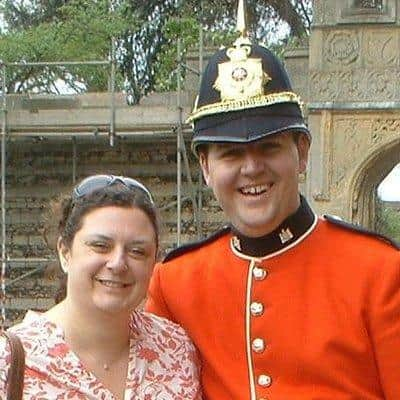

Why representation in the magistracy matters
Dr Yasmin Ghazala Farooq served as a Sheffield magistrate until March this year when she retired, after an impressive 25 years of service.
Yasmin, who has six degrees including a Masters in Social Sciences and a Diploma in Public Service Interpreting, was frequently brought into the orbit of Sheffield Magistrates’ Court through her role as a social worker.
Advertisement
Hide AdAdvertisement
Hide AdShe described how, when looking around the various courtrooms she would find herself in, that she did not see herself represented, both in terms of court staff, solicitors, barristers and the magistracy.
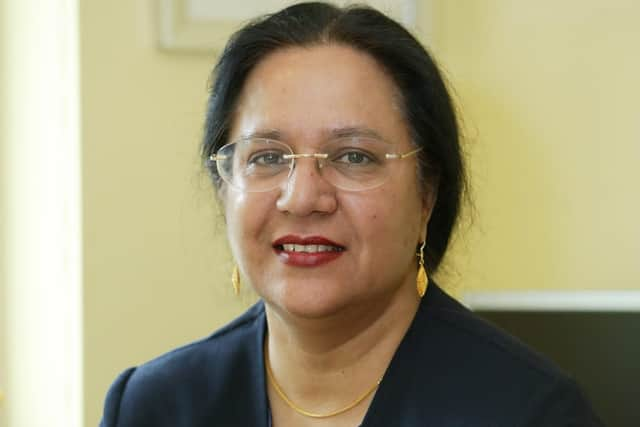

“I’ve always taken a keen interest in the law. I was a social worker for three decades, and it brought me into court a lot,” said Yasmin.
She added: “I felt there was a lack of representation from minority communities, and I believed it was time to give back to the communities who have given to me.”
‘None of us are free from bias’
Yasmin believes that we all have biases and prejudice, whether unconscious or otherwise, and so diversity and representation on the magistracy bench is essential to ensure that those biases do not preclude defendants from receiving the fair judgements they are entitled to.
"None of us are free from bias,” she said.
Advertisement
Hide AdAdvertisement
Hide AdYasmin says the kind of diversity she is referring to, and would like to see on the bench, is ‘very broad’ and includes age, race, class, gender, sexuality, disability, hidden disability, and more.
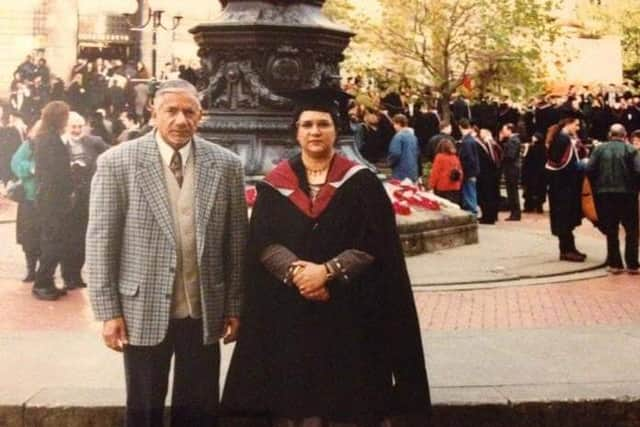

“When you have a diverse background of people from all different sections of the community it gives a message to service users that we are representing them, and people can relate to that,” she said.
Yasmin said another reason that she chose to become a magistrate is that she believes it is ‘very important’ for members of all communities to have ‘role models to aspire to’ and she believes the position of magistrate allowed her to succeed in that pursuit.
Of the magistrates in South Yorkshire, 90 per cent are white, and 60 per cent are over 60. There are currently only two magistrates who are under 30.
‘Everyone has something to contribute’
Yasmin believes that ‘everyone has something to contribute’ to the magistracy, irrespective of the level of education and qualifications they have obtained, and a legal adviser is always on hand to educate Justices on the letter of the law.
Advertisement
Hide AdAdvertisement
Hide AdThe qualities she regards as essential for the role are being able to have ‘good communication skills’ the ability to have ‘respect and social awareness of the local communities that they serve’; ‘being receptive to others’ views, being able to make sound judgements by setting aside prejudices that we all have in some form or shape and finally being able to have time to undertake their duties on a regular basis’.
Lay magistrates serve on a ‘bench’ of three, each bringing their unique set of experiences into decision making, whilst also carefully considering the evidence brought before them.
Yasmin said: “Coming from a South Asian community, it gave me great satisfaction to bring my experiences to the bench. I believe I’ve made an impact on the criminal justice system by being part of the process. Whilst I was learning from them [other members of the bench] they were learning from me.”
When asked what being a magistrate has taught Yasmin, she said: “To be respectful of others, to be non-judgmental, you have to look at the evidence before you.”
“I learned through this work that we all have gut reactions to something, but you set aside those biases to make a decision.”
The importance of diversity of age on the bench
Advertisement
Hide AdAdvertisement
Hide AdNick Barrett was just 30-years-old when he became a Sheffield magistrate in 2008 and encourages people who are interested in joining the bench, to do so when they are younger.
“There are some magistrates in Sheffield who have joined at 18, and it’s nice to have people who are younger…because they bring those younger values, and are more representative of people living in the city,” said Nick, now aged 44.
Nick currently works as a driving instructor in Sheffield, and has enjoyed a number of professional roles during his career including as a musician in the Territorial Army (TA), as principle cornet player, in the Royal Anglian regiment; as an IT manager for Tesco and he has also worked for Sky and Fujitsu, a role that brought him to Sheffield in 2006.
Prior to becoming a magistrate, Nick, who was brought up near Brighton, said he had an ‘armchair interest in the law’ and then met some magistrates in the TA, who told him what ‘it was all about’ which piqued his interest.
Advertisement
Hide AdAdvertisement
Hide AdFrom there, he went online to learn some more and made a successful application to become a magistrate.
‘There’s nothing like working with a real balance of people’
Fourteen years on, and Nick says ‘there's nothing like working with a real balance of people’ on the bench.
Like Yasmin, Nick believes that diversity, and having a range of people representing, ‘different ages and different races,’ is crucial to ensure the bench attempts to mirror the cross-section of people living in Sheffield.
Commenting on the enjoyment he derives from being a Justice of the Peace, Nick said: “It’s very different to my day job, and it gives you a change and a real perspective on life. The decisions you make are life-changing and so it gives me a great deal of perspective on what I’m doing, and it gives me a great deal of purpose.”
Advertisement
Hide AdAdvertisement
Hide AdNick says magistrates need to have ‘integrity,’ they also must be able to ‘work with others,’ and to employ ‘structured decision making, following a process to get the correct result’.
Those serving as magistrates must be in court for at least 13 days a year, and employers must, by law, allow them reasonable time off work to carry out their duties.
Training to become a magistrate takes place over about 21 hours, or three-and-a-half days, and will also include some meetings.
You can apply to become a magistrate here: icanbeamagistrate.co.uk